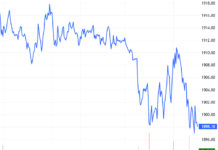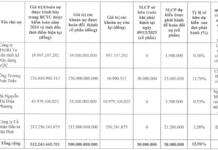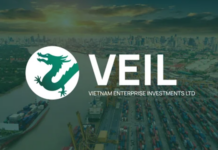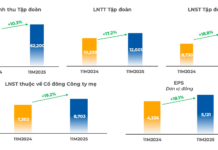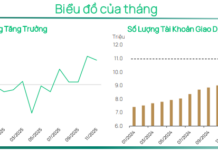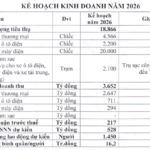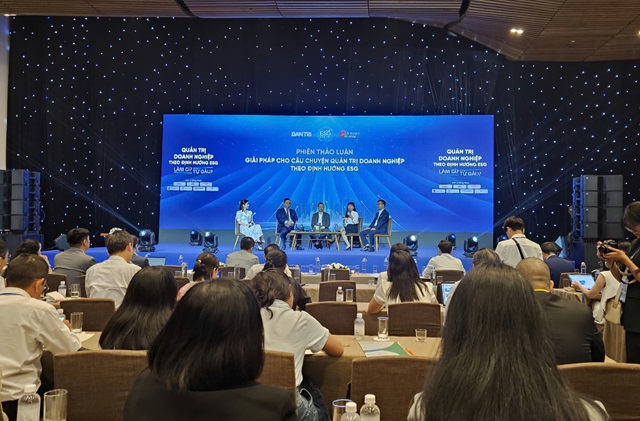
Speakers at the seminar on the morning of August 29, 2024
|
ESG is a tool for more effective management, profit creation, and not just cost management.
In the past, corporate governance was often seen as a cost-generating aspect of doing business, and if not done right, it could lead to a situation where the “cure is worse than the disease.” This perspective suggests that implementing corporate governance can negatively impact profits. However, nowadays, many argue that corporate governance with an ESG focus can be a profit driver. If done well, it can help businesses not only reduce costs but also build sustainable profits.
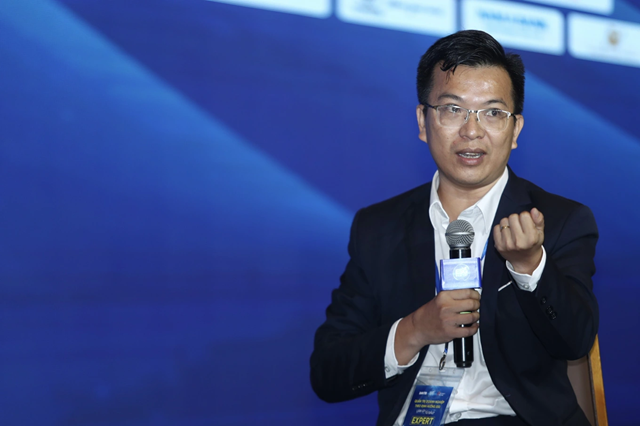
Dr. Bui Thanh Minh, Deputy Director of the Office of the Research Commission for Private Economic Development (Commission IV)
|
Dr. Bui Thanh Minh, Deputy Director of the Office of Research Commission for Private Economic Development (Commission IV), shared that businesses are concerned about governance for two main reasons. On a macro level, the Vietnamese economy relies on labor, environmental, and resource deficits. The percentage of businesses making a loss is usually around 50%. There are losses in the FDI sector, and when it comes to private enterprises in Vietnam, any explanation for losses ultimately points to governance issues.
If a business is genuinely making a loss, it’s due to poor business performance. However, if a business reports losses but is actually making a profit, it will face challenges in accessing bank capital.
Global ESG practices put pressure on Vietnamese businesses, leading to increased costs. As a result, businesses are forced to transform. Adopting ESG practices addresses governance weaknesses. ESG is a global trend, and by embracing it, we can optimize costs and resources.
Moving towards ESG can help businesses access green capital, which, although not cheap, offers medium- to long-term funding opportunities. This addresses the issue of capital structure in a credit-dependent context.
ESG momentum opens up new business opportunities, allowing businesses to combine, maximize, and minimize risks. Given the inherent governance issues in businesses and the global ESG trend, governance is both preventive and curative. The key is knowing how to use it and determining the right dosage for a healthy body.
Representing the manufacturing sector, Mr. Nguyen Duc Minh, Vice Chairman of the Association for the Production of Key Industrial Products of Hanoi, shared practical experiences from businesses implementing ESG. He emphasized the importance of setting priorities and understanding that ESG implementation requires a roadmap. ESG assessment agencies evaluate based on this roadmap and do not expect immediate results. They understand that it’s a process that may take five or even ten years.
In the initial stages of this roadmap, businesses can focus on raising awareness among top and middle management. The next steps might involve addressing financial or factory-related matters.
Since ESG assessment agencies evaluate based on the implementation roadmap, it’s not overly complicated for businesses to adopt ESG practices. Businesses need not worry about implementing ESG according to current trends.
However, governing a business with an ESG focus is not a simple task. Many businesses, especially small and medium-sized enterprises (SMEs), which make up a large portion of Vietnamese businesses, struggle with this process.
Ms. Pham Thi Quynh Vi, Director of Quality, FPT Corporation, emphasized the importance of ESG implementation. At FPT, a strong culture of learning is promoted, and the leadership has established a criterion that all employees must have 120 hours of learning per year.
But who should we learn from? First and foremost, we learn from our clients. When we go to inspect their management systems, we learn from major clients like Canon, Hitachi, Airbus, and Boeing. Secondly, we learn by comparing FPT Corporation with Indian corporations.
“The cost of learning about ESG is ‘negligible.’ We don’t need to spend a lot of money on ESG”, affirmed Ms. Vi.
Associate Professor Dr. Nguyen Duc Trung, Rector of the University of Banking in Ho Chi Minh City, added that while money is essential for ESG implementation, what’s even more critical is ensuring that the money is sufficient and well-directed. Cost management is something business owners should pay attention to. For example, at the University of Banking, the administration considered clean energy and installed air conditioners and solar panels to save costs. The solar panels provide enough energy to run the air conditioners comfortably, resulting in cost savings.
ESG is a tool for more effective management and profit creation, not just cost management. To increase the number of students, you must attract talent and professors. ESG is a tool that enhances management effectiveness. Most importantly, it inspires the rest of the organization.
Where to Begin?
To implement corporate governance with an ESG focus, what do businesses need to do, and where should they start? How do they choose a governance model that fits their unique characteristics? Mr. Nguyen Duc Trung answered that in the business of education, the profit target might be level A or level B, and each level requires a different starting point. It’s essential to clearly define the profit target and set reasonable capital goals. For example, a business aiming for ESG needs to ensure it has the necessary funds. If a business has limited funds and wants to implement an information technology system, it must do it itself.
In the past, the University had to spend 2 billion VND to hire teachers to create exams. Now, with AI, they can do the same for around 1.4 billion VND, and AI can even create lectures for the teachers and more.
Investing in a core product accounts for about 70% of the cost, and optimizing cash flow is crucial. The questions remain: how much money, and is the cash flow on target? It’s essential for businesses to design their output and attract investment. ESG strengthens businesses. First, when implementing ESG, you must determine the cost, and then you design the product. The more money a business has, the stronger it becomes.
To govern a business with an ESG focus, Dr. Bui Thanh Minh suggested that there are various perspectives on ESG practices, and it’s essential to analyze the business model, impact, and purpose of ESG implementation. If the goal is to expand the market, learn from pioneering businesses and research how they approached ESG. The report must convincingly present data to investors, buyers, customers, and supporters.
However, Vietnamese businesses often use the “AC” method, or estimation, which can lead to challenges when problems arise because it’s difficult to pinpoint the issue.
ESG practices should be about “data storytelling.” If a business wants to prove its commitment to its employees, it must build a database to collect and analyze relevant information.
“Vietnamese businesses face challenges, so when they spend one dollar, they have to calculate. First, businesses must comply with the law, and then they should think about integration. When we see a big problem, we can share resources and join forces in communication. We adjust our expectations to our capabilities, and we practice what we can as long as we don’t overstate our achievements”, added Mr. Minh.
Regarding the issue of hiring ESG consulting firms for businesses, Dr. Le Thai Ha, Executive Director of the VinFuture Foundation and Executive Director of the Green Future Fund, shared that there is no one-size-fits-all formula for businesses. Each business has its unique characteristics in terms of industry, scale, and nature of operations. Therefore, hiring consultants in the initial stages is essential if businesses lack the necessary knowledge to implement ESG.
It’s crucial for businesses to work closely with consulting firms, ensuring that the consultants understand the nature and characteristics of their operations. The consulting firm’s role is to provide market information and global trends to the business seeking advice. Based on this information, the business owner can choose the most suitable model.
The role of consulting firms is not to replace the business in its operations but to accompany and advise, allowing the business to make its own choices and take responsibility for those choices.
Strong and Practical Implementation of ESG Strategy at Masan
Masan, a leading Vietnamese company in the Consumer-Retail sector with billions of dollars in market capitalization, is not only known for its business achievements but also for pioneering the integration of ESG (Environmental, Social, and Governance) strategies into its operations. By prioritizing sustainable development, Masan aims to create a positive impact on both the company and the community as a whole.
Remove Unit Price Formula in Infrastructure Construction as Soon as Possible
Many contractors find themselves in a predicament where they are losing more money as they continue to work on projects, with no resources for reinvestment in equipment or the ability to retain high-quality personnel to enhance their competitive edge. This situation arises from outdated and unrealistic construction project estimates that do not align with reality.

